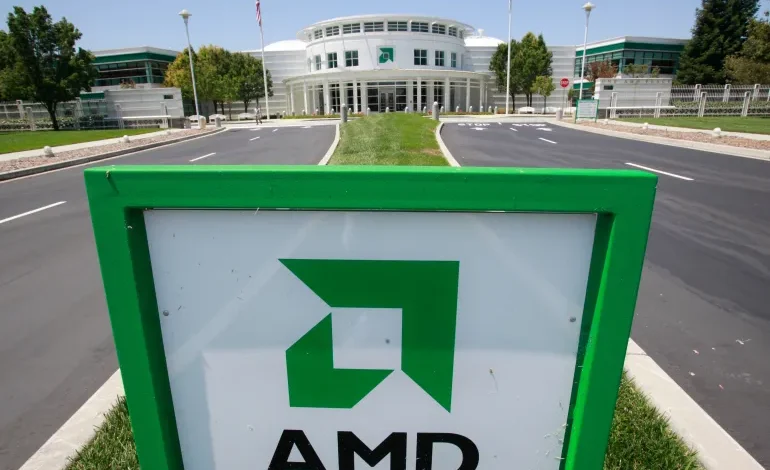United States chipmaker AMD has struck a multiyear deal to supply artificial intelligence processors to OpenAI, a partnership projected to bring in tens of billions of dollars annually and give the ChatGPT developer an option to acquire up to 10 percent of the company.
The announcement sent AMD’s shares soaring 34 percent on Monday, their sharpest one-day rise in nearly a decade, adding roughly $80bn to the company’s market value.
The agreement underscores the AI industry’s massive appetite for computing power as firms push toward building systems that approach, or surpass, human-level intelligence.
“We view this deal as transformative — not just for AMD, but for the dynamics of the entire industry,” said Forrest Norrod, AMD’s executive vice president, in an interview with Reuters.
A challenge to Nvidia’s dominance
The partnership tightens OpenAI’s ties with AMD, which has long competed with Nvidia, the market’s leading AI chip supplier. Nvidia recently announced its own multibillion-dollar investment in OpenAI.
Analysts say the AMD deal signals a major vote of confidence in the company’s technology, though Nvidia’s dominant position, and its near-total backlog of sold-out AI chips, remains intact.
AMD executives estimate that OpenAI and other customers could generate over $100bn in new revenue over four years, with annual income from the OpenAI deal alone expected in the tens of billions.
By comparison, AMD is projected to post $32.7bn in total revenue this year, according to LSEG data, while Nvidia is forecast to bring in $206bn.
“AMD has really trailed Nvidia for some time. This helps validate their technology,” said Leah Bennett, chief investment strategist at Concurrent Asset Management.
Nvidia’s shares slipped about 1 percent following the announcement.
OpenAI’s growing infrastructure race
OpenAI CEO Sam Altman said the AMD deal would bolster the company’s AI infrastructure as it scales its computing capacity worldwide.
OpenAI, now valued at $500bn, reported $4.3bn in revenue during the first half of 2025, but also burned through $2.5bn in cash. It remains unclear how the startup will finance the enormous procurement.
In September, OpenAI announced a $100bn deal with Nvidia to access at least 10 gigawatts of systems, but unlike that arrangement, the AMD agreement includes a potential equity stake for OpenAI, allowing it greater influence over AMD’s corporate strategy.
“With Nvidia, OpenAI is simply a client. With AMD, it could become a part-owner,” said Dan Coatsworth, head of markets at AJ Bell.
Strategic alignment and restructuring
OpenAI and its main backer Microsoft recently signed a nonbinding agreement to restructure OpenAI into a for-profit entity.
A source close to the matter said the AMD partnership does not affect the company’s ongoing compute strategy or its collaboration with Microsoft.
The two firms have worked together for years, OpenAI has previously provided feedback on AMD’s earlier-generation AI chip designs.
Analysts say this new deal may mark the beginning of a more balanced AI hardware market after years of Nvidia’s near-total dominance.










The latest news in your social feeds
Subscribe to our social media platforms to stay tuned